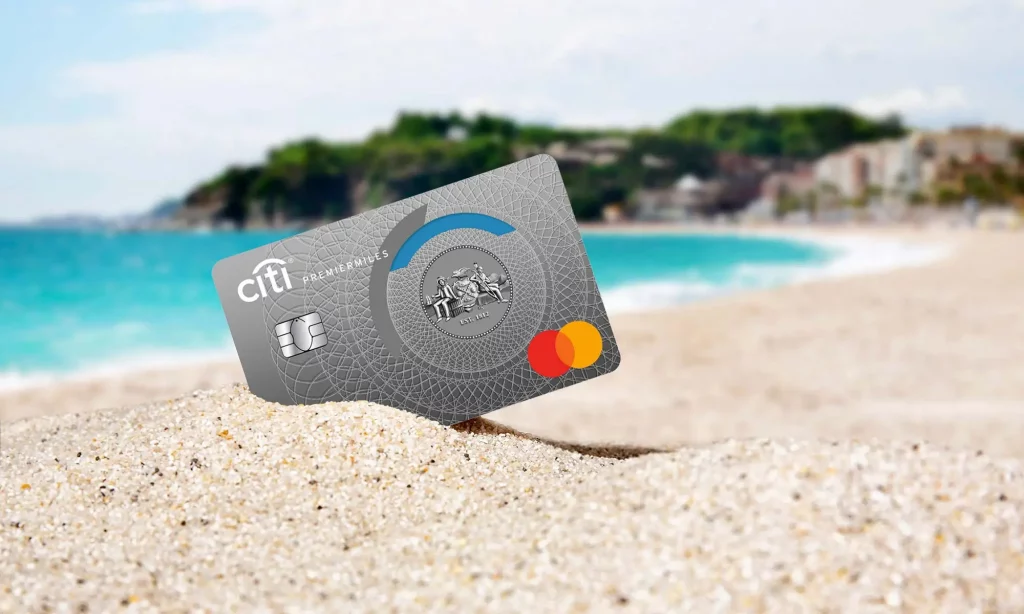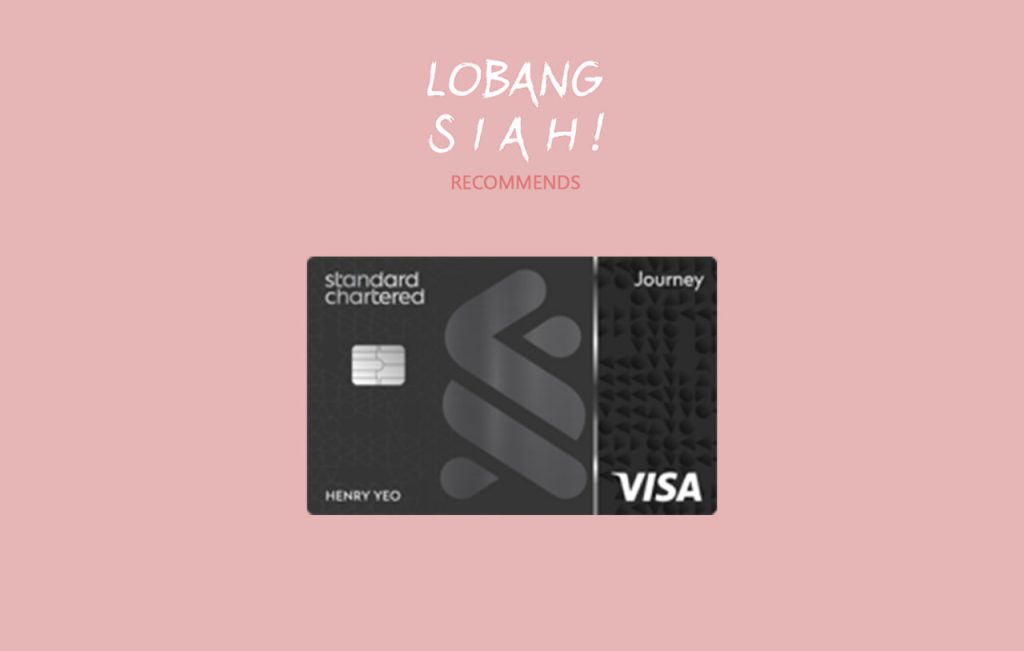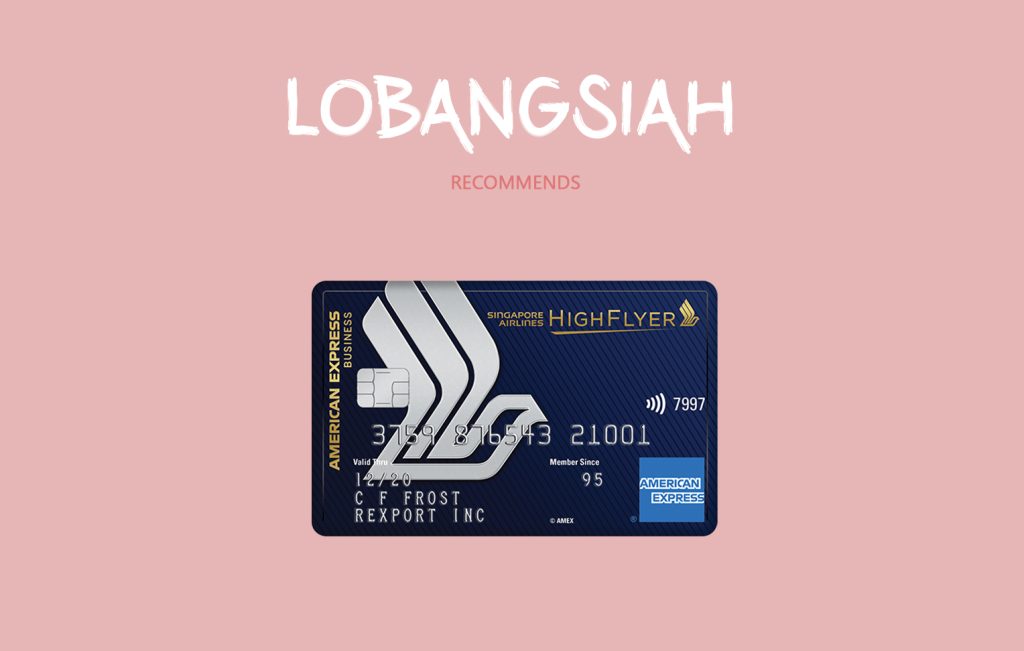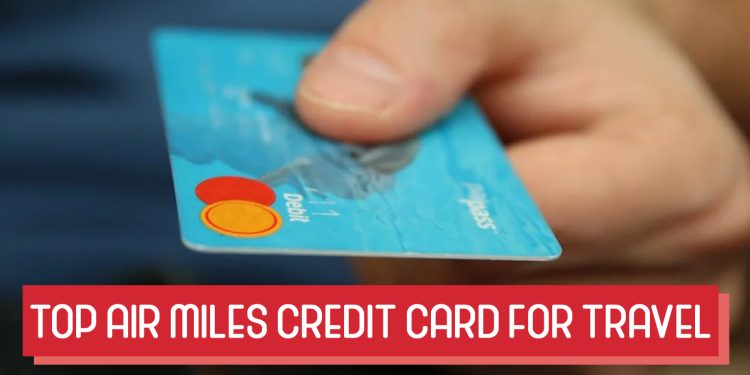Frequent travelers eagerly seek out the finest air miles credit cards, considering them an indispensable asset in their travel arsenal. After all, who wouldn’t want more affordable flights, allowing you to allocate your funds to other aspects of your journey, and the convenience of earning rewards through everyday credit card spending?
The challenge, however, lies in the multitude of miles cards available, each offering different levels of benefits, making the decision-making process quite perplexing. But fear not, we’re here to streamline the process for you by outlining the top air miles credit cards to consider and explaining the rationale behind each recommendation.
So, whether you’re a seasoned jet-setter or just starting your journey towards accumulating air miles strategically, you’ll soon be on your way to maximizing your travel experiences while minimizing your expenses.
Best air miles cards in Singapore 2025
Presenting the Finest air miles credit cards in Singapore, along with valuable insights into their mechanics to help you master the art of maximizing your rewards.
1. Citi PremierMiles Card
When considering the best air miles credit cards in Singapore for 2025, it’s important to look beyond flashy sign-up bonuses and focus on long-term value. You’ll want a card that helps you earn miles steadily, offers flexible redemption options, and comes with travel perks that actually matter when you’re on the move.
One of the standout choices this year is the Citi PremierMiles Card, which remains a favorite for frequent flyers and casual travelers alike. You’ll earn 1.2 miles per S$1 spent locally and 2 miles per S$1 spent overseas — a solid earn rate that makes every purchase work harder for your next adventure. The miles don’t expire, giving you the freedom to plan trips at your own pace without worrying about expiry dates.
If you value simplicity and flexibility, this card also offers access to over 90 airport lounges worldwide (with two complimentary visits per year), travel insurance coverage, and a wide network of airline and hotel transfer partners.
For 2025, many banks have continued to enhance their welcome experiences. Through SingSaver, new Citi PremierMiles cardholders can select a reward tailored to their lifestyle — whether it’s S$400 cash via PayNow, S$450 in Shopee vouchers, a Dyson Airwrap, or even an ergonomic office chair. Those seeking an extra treat can also top up slightly to opt for higher-value tech or home essentials.

Ultimately, the Citi PremierMiles Card strikes a balance between rewarding everyday spending and providing meaningful travel benefits — a combination that makes it one of the top air miles cards to consider in Singapore this year. More Info here.
2. DBS Altitude Card
When it comes to choosing an air miles credit card in Singapore for 2025, flexibility and sustainability of miles accumulation remain top priorities. Enter the DBS Altitude Card, a strong contender that has consistently earned its place among the top choices for both frequent flyers and occasional holidaymakers.
One of the biggest advantages of the DBS Altitude Card is its miles that never expire. This is a huge plus for those who prefer to accumulate slowly and plan bigger redemptions, without the pressure of using points before they vanish.
In 2025, the earn rates continue to be competitive:
1.3 miles per S$1 on local spend
2.2 miles per S$1 on overseas spend
Up to 3 miles per S$1 on online flight and hotel bookings, which is particularly attractive if you regularly book travel online (for example, via Expedia, Agoda, or directly on airline websites).
Beyond miles, the DBS Altitude also offers travel insurance coverage of up to S$1 million when you charge your full travel fare to the card — an added layer of peace of mind. In addition, cardholders receive two complimentary airport lounge visits each year, a nice perk if you enjoy starting your journey in comfort.
Another highlight? The DBS Altitude Card provides flexibility in miles redemption — you can convert miles to various frequent flyer programs such as KrisFlyer, Asia Miles, and Qantas Frequent Flyer.
For new applicants in 2025, DBS continues to offer attractive welcome gifts through partners like SingSaver — options include cash, shopping vouchers, or tech gadgets, depending on the ongoing campaign. While these are appealing, the true strength of this card lies in its everyday rewards and long-term travel benefits.
In short, the DBS Altitude Card stands out for those looking for a reliable, fuss-free air miles card that works well whether you’re spending at home or abroad, with no rush to redeem your miles. A solid, balanced choice for anyone planning to turn everyday spending into future getaways.
3. OCBC 90°N Card
When building your shortlist of top air miles cards in Singapore for 2025, the OCBC 90°N Mastercard stands out for its simple, value-driven structure. Here’s why it remains a top contender:
Earn Rates That Work
1.3 miles per S$1 spent locally (equivalent to 6.5 miles per S$5 block)
2.1 miles per S$1 on foreign currency transactions (10.5 miles per S$5 block)
Bonus 6–7 miles per S$1 on Agoda bookings, depending on currency
While OCBC’s S$5 earning blocks can slightly reduce efficiency on smaller transactions, this is offset by its strong overseas and travel-category rates.
Miles That Never Expire
Enjoy true flexibility: your OCBC 90°N Miles don’t expire, and you can convert them at a 1:1 ratio to KrisFlyer miles—without worrying about redemption deadlines.
Travel Perks & Flexibility
Redeem miles in small blocks (1,000-mile increments) or convert them to cashback/vouchers
No caps on earnings—spend as much as you like
Mastercard version includes DragonPass lounge access and global dining/spa privileges
4. Standard Chartered Journey Card
A Flexible All-Rounder for Air Miles in 2025
When deciding on the best air miles credit cards in Singapore for 2025, one key factor stands out: flexibility. Whether it’s flexibility in earning, redemption, or usage abroad, the Standard Chartered Journey Card has emerged as a strong all-rounder for everyday spenders and frequent travelers alike.
Strong Earning Power for Everyday Life
The Journey Card offers competitive earn rates that make sense for both local and travel spending:
1.2 miles per S$1 on local spend, uncapped — a solid base for daily use.
2.0 miles per S$1 in foreign currency, great for overseas shopping or holiday trips.
3.0 miles per S$1 on online transactions in transport, food delivery, and groceries, capped at S$1,000 per statement month.

In 2025, this 3.0 mpd online boost remains one of the most attractive features for those who spend regularly on Grab, ComfortDelGro, Deliveroo, or RedMart — giving your daily life an extra edge in miles accumulation.
No-Expiry Points & Wide Transfer Options
Your 360° Rewards Points never expire, letting you save up for a big dream redemption without worrying about deadlines. You can convert them to KrisFlyer, Asia Miles, or other major airline partners, giving you flexibility to choose the best flight deals or upgrade offers at the right time.
Travel Perks to Sweeten the Deal
The card also includes perks that make travel smoother and more comfortable:
Two complimentary Priority Pass lounge visits per year — ideal if you enjoy starting your trip with some quiet comfort.
Complimentary travel insurance coverage (up to S$500,000) when your full fare is charged to the card.
These added benefits place it ahead of many entry-level cards that focus solely on earn rates.
Fees & Requirements
Annual fee: S$196.20 (waived in the first year).
Income requirement: S$30,000 (Singaporean/PR) or S$60,000 (foreigner).
Foreign currency transaction fee: 3.5% — something to factor in for frequent overseas spenders.
The card is especially suitable if:
✔️ You want a flexible, non-expiring miles program without the pressure to redeem quickly.
✔️ You spend often on local online services like rides, groceries, and food delivery.
✔️ You appreciate occasional lounge access and travel insurance protection.
5. Amex Singapore Airlines KrisFlyer
For 2025, the Amex Singapore Airlines KrisFlyer Card remains a popular choice for those who want to earn miles directly without extra conversions.
Simple, Direct Miles Earning
1.1 miles per S$1 on local spend.
2.0 miles per S$1 on foreign currency spend.
3.1 miles per S$1 on Singapore Airlines, Scoot, and KrisShop purchases.
All miles earned are credited straight into your KrisFlyer account, saving you the hassle of manual transfers.

The Amex KrisFlyer Card is best if you mainly fly Singapore Airlines and want fuss-free miles credited automatically — no conversions, no expiry worries, just straightforward earning toward your next SQ redemption.
6. UOB PRVI Miles Card
High Miles for Big Spenders
The UOB PRVI Miles Card is ideal if you want to rack up air miles fast in 2025.
1.4 miles/S$1 local spend
2.4 miles/S$1 overseas spend
6 miles/S$1 on flights and hotels booked online
It offers uncapped miles and solid travel insurance, making it great for frequent travelers and big spenders.
Annual fee is S$261.60 but can be waived with minimum spending. Points last 2 years, so plan redemptions accordingly.
What are air miles and how do they work?
Air miles are an integral component of frequent flyer programs (FFP), with the most renowned one in this region being Singapore Airlines’ KrisFlyer program. KrisFlyer miles can be employed across an extensive network of partner airlines, encompassing all members of the Star Alliance.
In theory, you have the option to purchase miles outright with actual cash. Some individuals opt for this approach, acquiring KrisFlyer miles when they don’t have a more compelling use for their funds.
However, why resort to that when you can earn them for free with the help of a credit card, right? By using an air miles credit card, you can amass frequent flyer miles either directly or through points accrual, which can then be converted into miles.
Once you’ve accumulated your miles, you’re all set to apply them toward the airfare for your upcoming holiday. It’s a win-win situation!
What should you look out for in a miles card in 2025?
Here are the key things to look out for when choosing a miles card in 2025:
Miles Earn Rate & Categories
How many miles do you earn per dollar spent? Look for cards offering at least 1.2 miles/S$1 locally and higher overseas.
Bonus categories (travel bookings, dining, groceries, online spending) can boost your miles faster.
Miles Expiry & Flexibility
Choose cards with no expiry or long validity on miles, so you can accumulate without pressure.
Check if miles can be transferred to multiple airline partners for more redemption options.
Caps & Limits
Beware of monthly or yearly caps on bonus miles—some cards limit how much you can earn in special categories.
Uncapped cards generally offer better long-term value if you spend a lot.
Fees & Requirements
Annual fees vary widely; assess if the benefits justify the fee or if you can waive it with minimum spend.
Consider foreign transaction fees, especially if you shop overseas or travel frequently.
Travel Perks
Look for cards offering airport lounge access, travel insurance, and other privileges like priority boarding or concierge services.
Welcome Offers & Promotions
While not the sole factor, attractive sign-up bonuses can help kickstart your miles balance.
Ease of Redemption
How easy is it to redeem miles? Check minimum redemption thresholds, blackout periods, and online redemption platforms.
Use a Rewards Credit Card as a Miles Card
To use a rewards credit card effectively as a miles card, focus your spending on categories that earn the most miles, such as travel, dining, and overseas purchases. Make it your primary card for everyday expenses like groceries, bills, and transport to steadily accumulate miles. Be mindful of any sign-up bonuses or minimum spend requirements and plan to meet them early to maximize rewards. Always pay off your balance in full each month to avoid interest charges that can negate the value of the miles earned.

Additionally, link your card to your preferred airline loyalty program for seamless miles transfer and keep track of your miles balance regularly. Plan your redemptions strategically to get the best value, such as upgrading to business class or booking flights during promotional periods. Don’t forget to leverage extra perks like travel insurance and airport lounge access that often come with miles cards. Finally, watch out for fees like annual and foreign transaction fees to ensure your miles rewards remain worthwhile.
(Credits: mainly miles, pexels)
Looking for some ideas? Join our Travel Channel on Telegram now!
👉🏻Book your accommodations and attractions conveniently on Trip.com, where new sign-ups can redeem $20, or explore exclusive discounts on Klook.
Since you’re here, why not read:


























